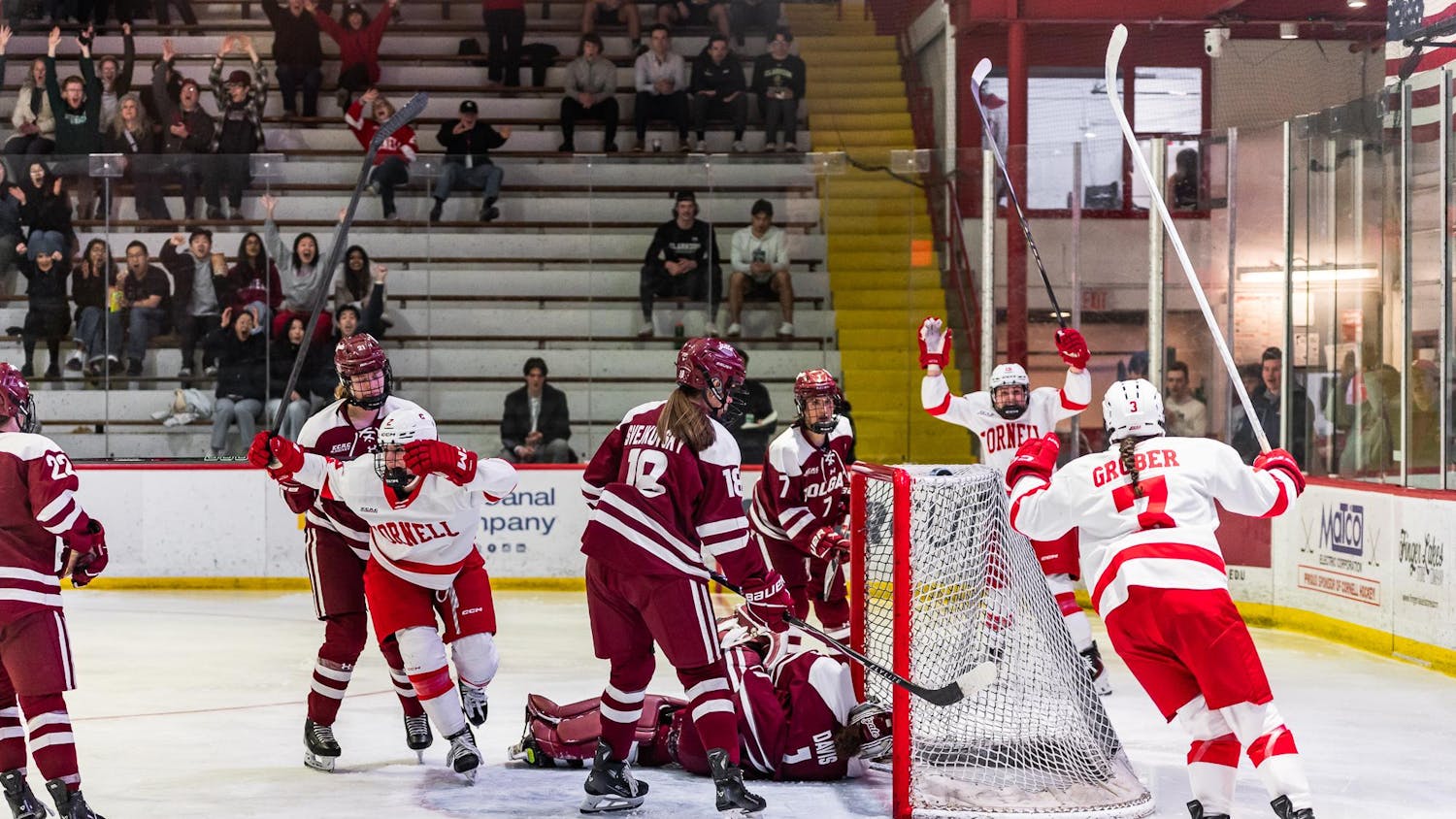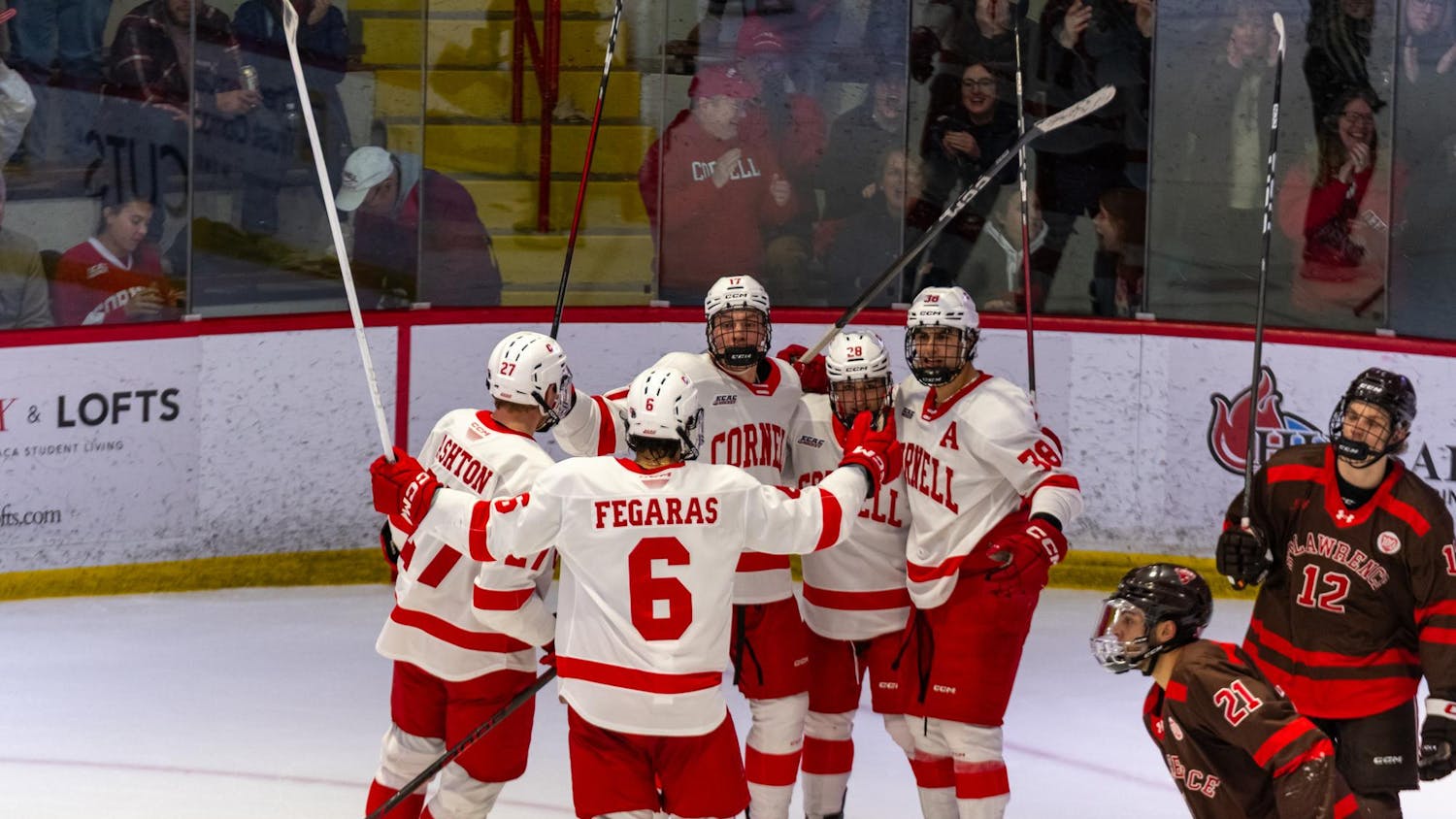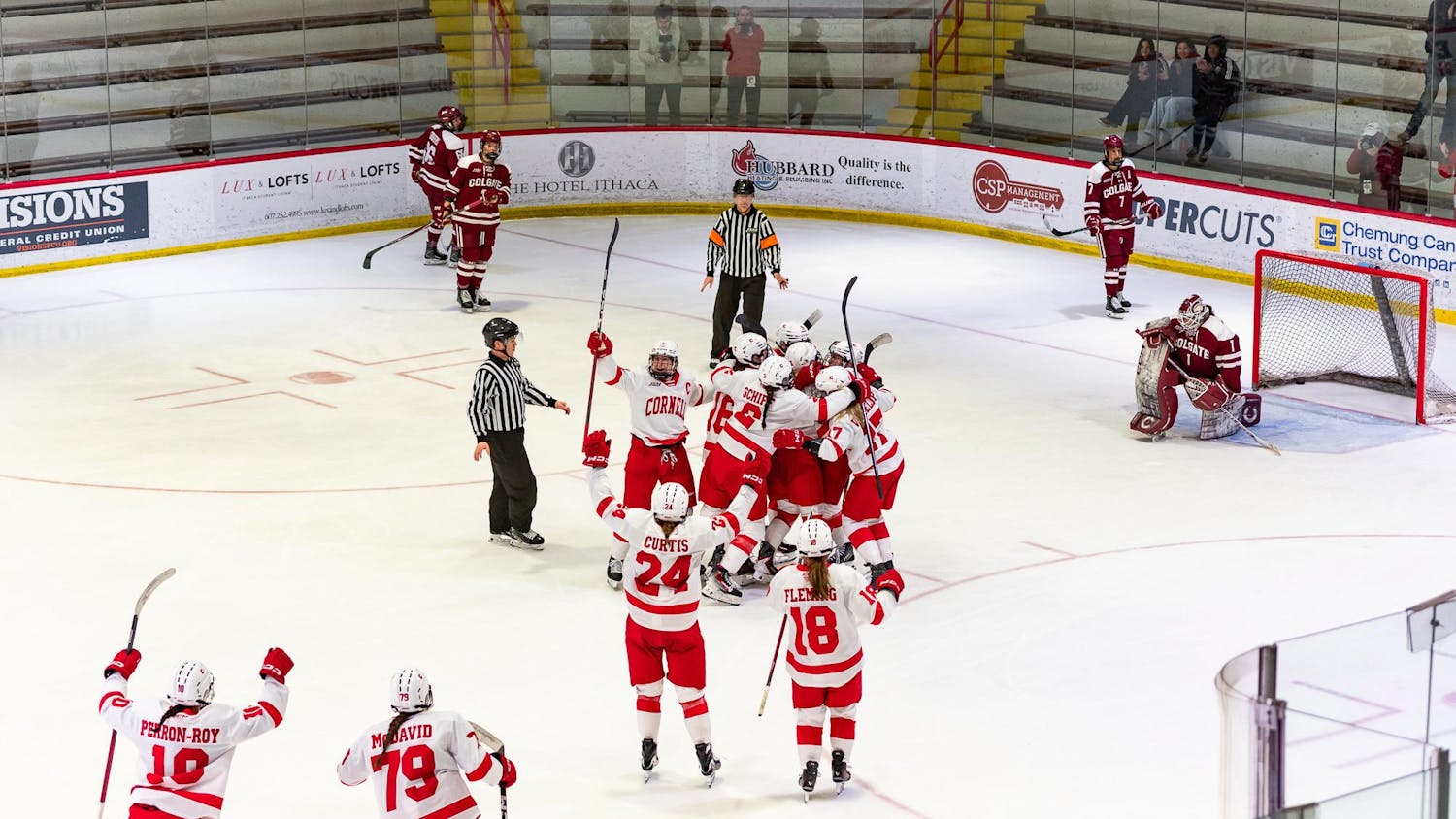Want to keep up with everything Cornell sports? Sign up for our biweekly sports email newsletter and stay up-to-date with the Red. Click here!
2005 should have been an exciting year for the Conklin family. In addition to six-year old Maddy and her younger sister Frankie, the Conklin crew was awaiting the arrival of another daughter, who could join the family at any moment. However, this sense of eager expectation quickly soured. Less than a month after the arrival of newborn Kate, the family’s pediatrician delivered some unwelcoming news. Postnatal genetic tests showed that Kate had Cystic Fibrosis — an illness that causes a thick buildup of mucus in the lungs, clogging airways and trapping bacteria. The disease can cause lung damage and respiratory failure, potentially affecting the pancreas and damaging other organs. But Kate’s diagnosis was just the tip of the iceberg. C.F. is a hereditary condition, so the entire family was advised to undergo testing for the genetic disorder. The news that followed was detrimental: Maddy and Frankie also tested positive for C.F. While the disease presented the sisters with plenty of challenges growing up, Maddy, now a sophomore on the Cornell field hockey team, says the illness allowed her to forge relationships with others in her same situation and become involved with organizations like Make-A-Wish, Cystic Fibrosis Foundation and Cohen’s Children’s Hospital in Queens. So the field hockey team’s Make-A-Wish fundraising event this Sunday — which runs concurrently with its contest against Bucknell — will be personal for Conklin, who was a beneficiary of the foundation. “I am really excited to be a part of the wish granting process,” Conklin said, who once had her own wish fulfilled. “After having such an amazing experience with this foundation, it is extremely important to me to help allow other individuals in similar situations to have their wish come true.”
Maddy, with younger sisters Frankie and Kate, serving as an ambassador of the Cohen Children's Medical Center.
Growing up with C.F.
Life wasn’t easy for Conklin and her sisters growing up. Conklin said that she and Frankie, the family’s middle daughter, were constantly being treated for “asthma-like symptoms, frequent respiratory illnesses and difficulties [with] gaining and maintaining weight.” Once the sisters were diagnosed with C.F., they had to go take medication and undergo therapy multiple times a day, on top of multiple doctor appointments, hospital stays and IV treatments. Just trying to stay healthy caused them to miss out on many routine events. Nevertheless, Conklin made the best of her condition. “C.F. was part of my life that helped shape me, however, I didn’t let it define me,” she said. “I wasn’t going to let C.F. stop me from doing the things I enjoyed most.” Maddy came to this realization when she was playing AAU field hockey for the Strong Island Field Hockey club in high school with Frankie. While the two were down in Florida for the Disney Field Hockey Showcase, ESPN made a short video about the two sisters living with C.F., a video which eventually made its way to a young girl in Massachusetts who was also fighting the disease. “[The video] gave [the girl] and her parents hope that there is life outside of having C.F. Because of that video, we made a difference in that one family’s life,” Conklin said. “We became friends, [I] FaceTimed with her and offered encouragement when needed. I realized the impact I could have on others.”Competing at Cornell
Playing the arduous position of midfielder at Cornell, Conklin runs on average six miles a game, she says. But if you ask head coach Donna Hornibrook, her on-field performance gives no indication of any respiratory issues. “I had no idea about her condition until her parents told me,” Hornibrook said, according to a Cornell Big Red Bio. “I had seen her play in high school and thought she was outstanding. There was nothing in her play that indicated that she had lung problems.” Conklin told Hornibrook about her condition while she was recruited, but it made no difference to the coach. “I didn’t have any reservations about Maddy,” Hornibrook said in the bio. “I thought even if she needed to come off the bench or play limited minutes, she was still going to be a really solid addition for us. And it turns out we were right.”
Conklin plays the grueling position of midfield for the Red, averaging about 6 miles of running per game
No Limits! Another example of overcoming adversity. #cfhttps://t.co/z0Ns6IiO77
— Boomer Esiason (@7BOOMERESIASON) November 18, 2016
Paying Wishes Forward
When she was 11 years old, Conklin was granted a wish through the Make-A-Wish Foundation. With her wish, Conklin traveled to Hawaii, where she participated in a myriad of activities, including a luau, a helicopter ride, a swim with dolphins and a horseback ride. While the trip was one that Conklin will never forget, she said the experience also opened up various avenues for her to give back to future wish-recipients. “While my wish was an amazing experience and one that I will never forget, I am most grateful for the relationships I have formed within the Make-A-Wish family and the doors that it has opened for me,” she said.
Conklin visted Hawaii thanks to Make-a-Wish
Inspiring a Future
C.F. has had a large impact on Conklin’s life, so it’s no surprise that it has shaped her academic and intellectual interests as well. “Even since [I was] diagnosed, I have become interested in science,” she said. “It started with the questions, ‘What is Cystic Fibrosis?’ ‘Why does this happen?’ ‘Why me?’ Which then led to the more complex questions of science, and ever since then science has been one of my passions.” Conklin studies Biology and Society in the College of Agriculture and Life Sciences with a minor in business, and hopes to someday work in business or the administrative side of medicine. But until then, Conklin will continue her work to be a role model for children with life-threatening diseases. “As of now, I hope to continue ... showing [the children] that they should never let these hardships control them, and to continue pursuing their dreams,” Conklin said. “At the end of the day, if my story motivates, helps, or supports another child living with a life-threatening illness, it was well worth it.”Read More











